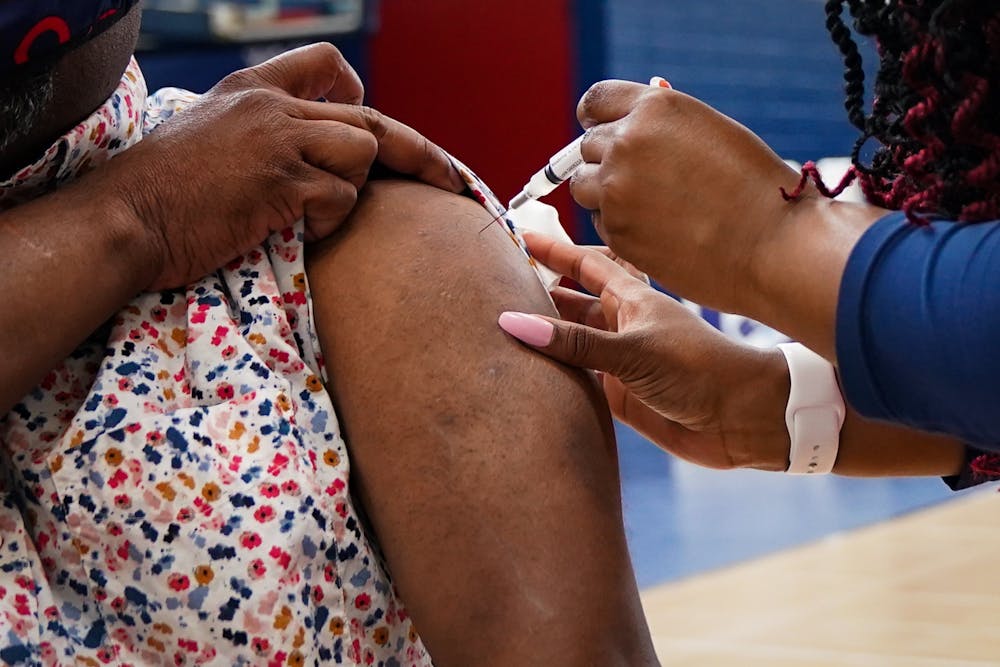
Penn Institute of Immunology found that people who have recovered from COVID-19 may only need a single dose of the vaccine.
Credit: Chase SuttonFindings from a recent Penn study indicate that people who have recovered from COVID-19 may only need a single dose of the vaccine.
The Penn Institute of Immunology found that people who had a prior COVID-19 infection had a significant antibody response after the first mRNA vaccine dose, but minimal increase in immunity after the second dose, Penn Today reported. The two primary vaccines currently in use in the United States — BioNTech/Pfizer and Moderna — require two doses.
The human immune system is heavily dependent on two main factors: the production of antibodies that assist in quick immunity and the creation of memory B cells, which contribute to long term immunity, Penn Today reported.
In the study, researchers collected blood samples from 44 healthy individuals who received the Pfizer or Moderna mRNA COVID-19 vaccine through the University of Pennsylvania Health System, Penn Medicine News reported. Eleven of these individuals had previously contracted COVID-19.
For those who had a prior COVID-19 infection, only one vaccination was required to produce a considerable response from the antibodies and memory B cells, Penn Medicine News reported. This was likely because of a primary immune response from the previous infection, according to the researchers.
Those who never had COVID-19 needed two doses, however, to achieve similar levels of immunity. Similar findings were reported in a study of antibodies against the D614G mutation and the B.1.351 South African variation of COVID-19, Penn Medicine News reported.
These findings are supported by recent studies published in ScienceMag and The New England Journal of Medicine, The Philadelphia Inquirer reported. The Penn study, however, is one of the first to analyze the long-term immunity outcomes.
The study was published in Science Immunology and received funding from philanthropic donations as well as several research institutions including the Allen Institute for Immunology, Cancer Research Institute-Mark Foundation Fellowship, and the Penn Center for Research on Coronavirus and Other Emerging Pathogens, Penn Medicine News reported.
The Daily Pennsylvanian is an independent, student-run newspaper. Please consider making a donation to support the coverage that shapes the University. Your generosity ensures a future of strong journalism at Penn.
Donate







